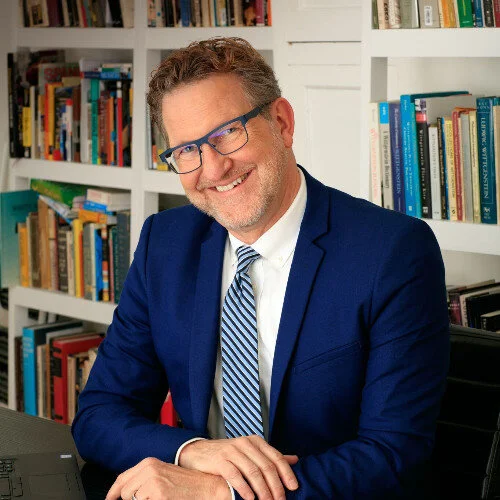What if leaders put first things first?
About
The most lasting changes are the deepest changes, and David Carl Wilson shows how thinking deeply—thinking philosophically--about leadership and management can make an enduring difference. Aristotle tutored Alexander the Great; Socrates’ students (not his best ones, unfortunately) went on to lead Athens; and philosophers ever since have been thinking about how the world could be and how leaders might move it in that direction.
David has been a leader from the start, having headed up the largest student organizations in his high school, college, and graduate school. Along the way he led the nation in door-to-door book sales for the Southwestern Company. After earning his PhD in philosophy from UCLA, he taught there for many years, rising to the level of Associate Provost. He then moved to Webster University as the dean for fourteen years of its globe-spanning College of Arts & Sciences
David has established a reputation as an effective and entertaining communicator of complex ideas. A Guide to Good Reasoning, initially issued by McGraw-Hill and now published by the University of Minnesota, has been praised for compellingly showing what philosophy can teach us about stepping up our everyday thinking. His quest now is to do the same for stepping up our everyday leading.
David has spoken on leadership and management to audiences in China, Thailand, Italy, Austria, Switzerland, the Netherlands, Cuba, the United Kingdom, and around the United States. He is a professor of philosophy at Webster, where he teaches courses in both the philosophy and the management departments. He serves on the executive editorial board of Philosophy of Management, an international journal in which he also publishes articles on leadership and management.
In his down time, David is a theater and opera enthusiast. He is a commissioner of the Regional Arts Council, and formerly served as the staff philosopher of Tennessee Williams St. Louis.
